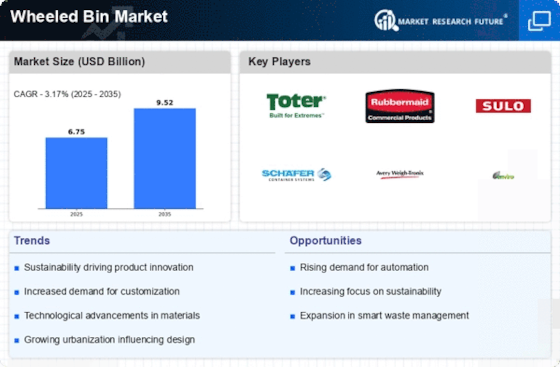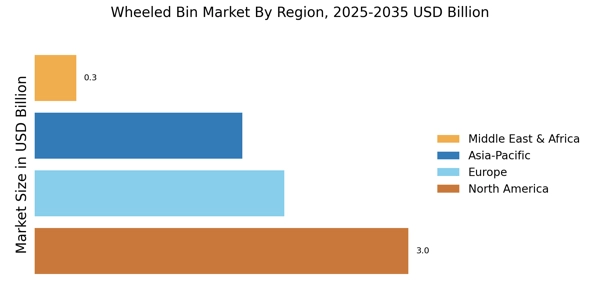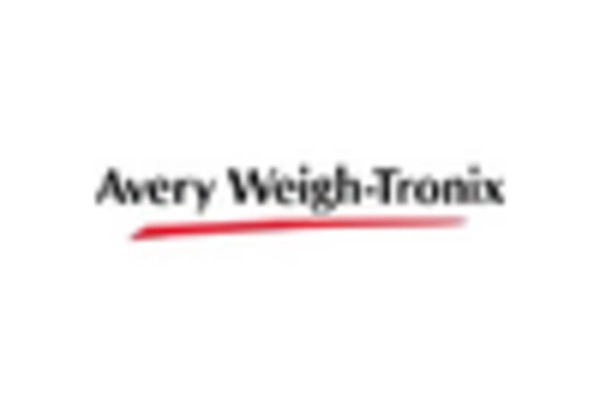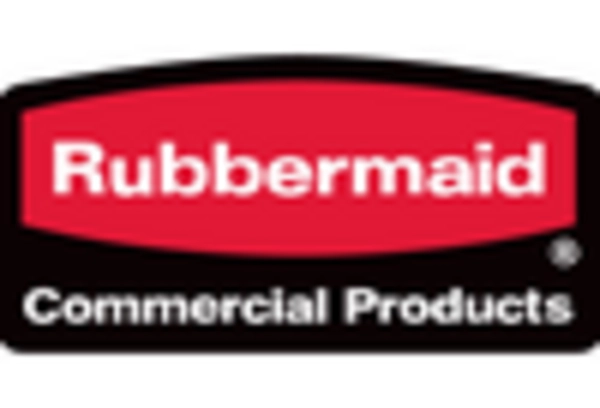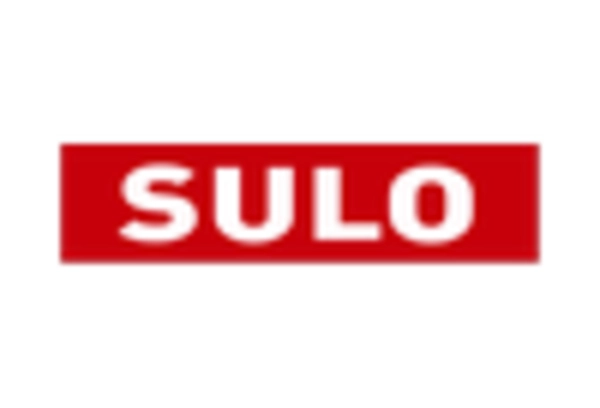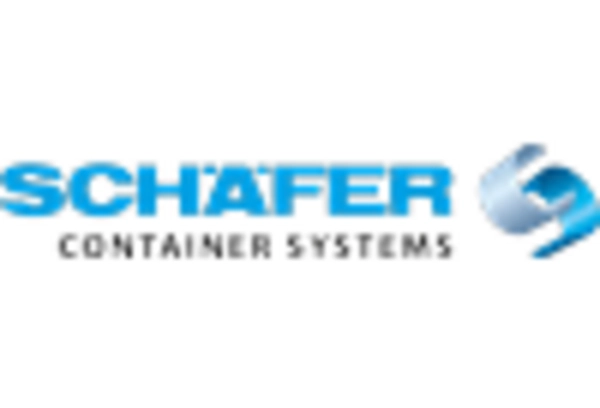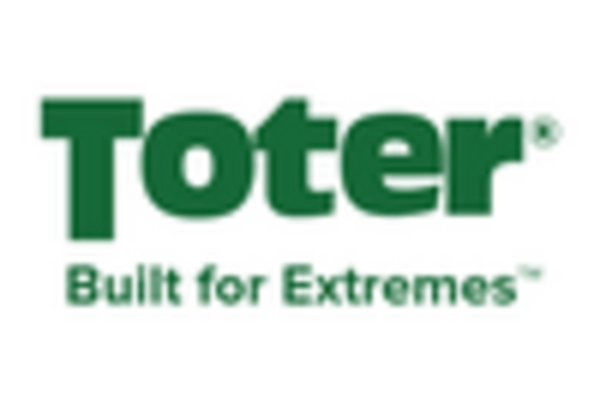Urban Population Growth
The rapid growth of urban populations is a key driver of the Wheeled Bin Market. As more people migrate to urban areas, the volume of waste generated increases significantly, necessitating efficient waste collection solutions. Urban centers are facing challenges related to waste management, prompting local governments to invest in wheeled bins that can accommodate larger volumes of waste. Market data indicates that urban areas are projected to see a population increase of over 1.5 billion by 2030, which will likely escalate the demand for wheeled bins. This demographic shift underscores the importance of effective waste management systems, positioning the Wheeled Bin Market for substantial growth in the coming years.
Rising Environmental Awareness
Growing environmental consciousness among consumers and businesses is significantly influencing the Wheeled Bin Market. As individuals become more aware of the impact of waste on the environment, there is a heightened demand for products that facilitate recycling and waste reduction. Wheeled bins designed for specific waste types, such as recyclables and organic waste, are gaining popularity. This trend is supported by data indicating that recycling rates have increased in many regions, leading to a greater need for specialized wheeled bins. The market is likely to benefit from this shift, as manufacturers innovate to create bins that cater to eco-friendly practices. The emphasis on sustainability is expected to drive the Wheeled Bin Market forward, as consumers seek solutions that align with their values.
Increased Waste Management Regulations
The Wheeled Bin Market is experiencing a surge in demand due to the implementation of stricter waste management regulations across various regions. Governments are increasingly mandating proper waste disposal practices, which necessitates the use of wheeled bins for efficient collection and segregation of waste. This regulatory push is likely to drive the market as municipalities and private waste management companies invest in compliant waste collection solutions. The market is projected to grow at a compound annual growth rate of approximately 5.2% over the next five years, reflecting the rising need for effective waste management systems. As urban areas expand, the demand for wheeled bins that meet regulatory standards is expected to increase, further propelling the Wheeled Bin Market.
Expansion of E-commerce and Retail Sectors
The expansion of e-commerce and retail sectors is contributing to the growth of the Wheeled Bin Market. As online shopping continues to rise, the volume of packaging waste generated is also increasing. Retailers and logistics companies are recognizing the need for efficient waste management solutions to handle this surge in waste. Wheeled bins are becoming essential for businesses to manage their waste effectively, particularly in urban areas where space is limited. Market analysis indicates that the e-commerce sector is expected to grow by over 20% annually, further driving the demand for wheeled bins. This trend highlights the critical role of the Wheeled Bin Market in supporting sustainable waste management practices in the retail and e-commerce landscapes.
Technological Advancements in Waste Collection
Technological innovations are reshaping the Wheeled Bin Market, as smart waste management solutions gain traction. The integration of IoT technology in waste collection systems allows for real-time monitoring of bin capacity and collection schedules. This advancement not only enhances operational efficiency but also reduces costs for waste management companies. Data suggests that the adoption of smart bins is on the rise, with many municipalities exploring these technologies to optimize their waste collection processes. As cities become more technologically advanced, the demand for wheeled bins equipped with smart features is expected to grow, driving the Wheeled Bin Market. This trend indicates a shift towards more efficient and sustainable waste management practices.


